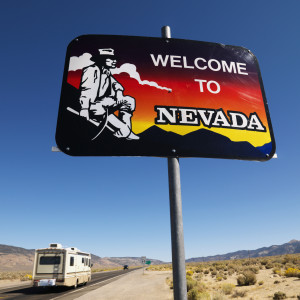Co-author Morgan Gerard
Nevada’s solar net metering policies will continue until year end, perhaps in part thanks to Senator Reid (D-NV) who threatened to intervene in the state’s Public Utilities Commission’s (PUC) review of the policy. Senator Reid, a staunch renewable energy advocate, believed that residential solar in Nevada had gotten a “lousy deal,” and pointed the finger at Warren Buffet’s Berkshire Hathaway. The Silver State’s Senator was referring to changes to Nevada’s net metering program, which gave solar-rooftop homeowners credit for system’s over-generation up to an aggregate of 3% of the peak load of Nevada’s Berkshire Hathaway-owned utility, NV Energy. As solar installations quickly neared the 3% cap, renewable advocates struck a compromise with NV Energy in supporting Senate Bill 374, which raised the limit to 235 megawatts of residential systems to qualify under net metering through the end of the 2015.
NV Energy had assured the legislature that this cap wouldn’t be reached until 2016; however, the net metering boundary had again been reached, and to catastrophic effect for some solar installers. The second largest U.S. rooftop solar installer, Vivint Solar, ramped up operations in July in reliance on enjoying stable net metering policies. In response to learning the cap was nearly at capacity, Vivint exited the state after only two weeks of operation, leaving a warehouse and 30 employees in its wake.
The deal struck with the Senate’s bill also moved jurisdiction over the broader net metering issue to the PUC, which approved an extender on the existing net metering and rebate policies to stabilize the residential market. The PUC will re-review net metering polices and grid costs before the end of the year, and NV Energy has submitted a thousand page proposal to include new fees, taxes and a nearly $14 demand charge for rooftop solar system owners.
This demand charge would force solar systems owners to in essence pay a “premium” for demanding electricity from the grid based on their peak usage during the month. Solar users would be charged for electricity by NV Energy: first, with a basic service charge; second, an energy consumption charge, based on total consumption in a given month; and third, for demand, based on the highest capacity required during the given billing period, measured in 15-minute intervals during that month’s billing cycle. Thus, NV Energy’s demand charge would require the peak demand each month to be multiplied by $14, a hard hit for any homeowner’s electric bill.
While NV Energy is promoting policies that make roof top solar potentially uneconomic, Warren Buffet has boosted his holding company’s massive investments in large-scale renewable energy—an attractive investment in the state due to Nevada’s ample solar incentives for industrial sized installations for businesses and power companies. The state has enacted a sizeable Renewable Portfolio Standard (RPS) and provided property tax exemptions for utility-scale projects. Although, as the holding company is monetizing the federal Investment Tax Credit (ITC) and taking advantage of these favorable state policies, residential roof top solar has lagged behind due to a combination of an ad-hoc interconnection policy, historically inconsistent solar rebate programs and lack of a residential property tax exemption. Net metering was among the incentives available to homeowners to become self-generators; however, the battles over the cap are disincentivizing the growing industry.
Utilities maintain that solar, net metering customers are not participating in contributing to the fixed costs of the grid and shifting costs onto non-solar customers while still reaping the benefits of consistent grid power. Although solar energy has only reached a one-percent penetration rate in the United States energy mix, the storyline in Nevada is unfolding all over the country as utilities grapple with distributed generation. Some states are moving towards more utility owned renewables, like in South Carolina where the local utilities are mandated to submit plans to include and procure distributed energy resources. On the other hand, New York and California are experimenting with different rate schemes that would allow the utility to survive and perhaps thrive in a distributed energy environment. The Nevada Public Utilities Commission is set to vote before December 31, and Senator Reid is set to interfere stating that the “monopolistic attitude that no longer works and the utilities can’t keep people from generating their own electric power in a diversified and much greener system.”



.jpg?width=220&name=Sullivan%204c(B2402503).jpg)